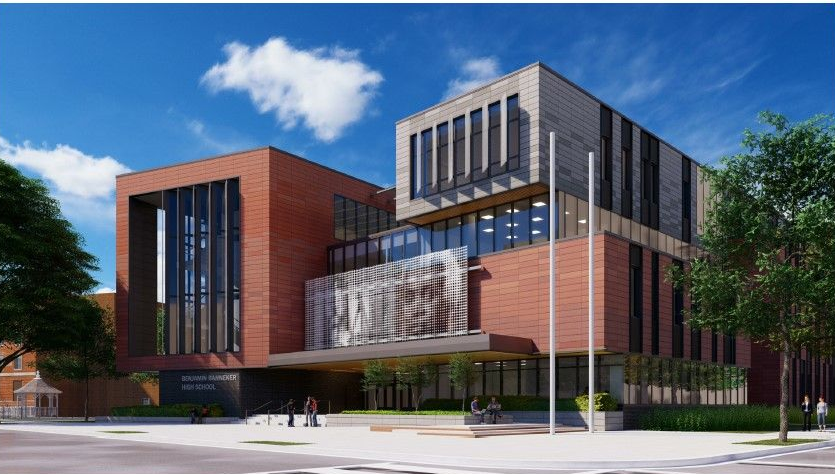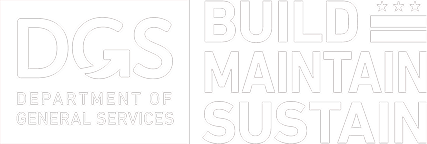As the agency tasked with building, maintaining and sustaining the majority of District government facilities, DGS is committed to applying green building standards for the benefit of District residents, visitors, and the environment. DGS designs and delivers public facilities that support health, wellness, and learning, while advancing electrification and minimizing energy use, embodied carbon, and lifecycle resource demands.
With the completion of Banneker High Academic School and John Lewis Elementary School, District government delivered its first net zero energy-ready schools in August 2021. A net zero energy building, based on the traditional definition, consumes as much energy as it generates on an annual basis. These buildings possess optimized building enclosures with highly efficient, all-electric mechanical systems, paired with onsite solar photovoltaics (PV). Banneker High School is believed to be the first net zero energy high school in the country and John Lewis Elementary School is Zero Energy certified by the International Living Future Institute. The 2023 enactment of the Greener Government Buildings Amendment Act put into law what DGS had voluntarily achieved for John Lewis and Banneker, mandating net zero energy design standards and the elimination of fossil fuels for all new or substantially improved District-owned or financed buildings. Since 2021, DGS has designed more than 20 school and recreation projects that either (a) meet the true onsite net zero energy (NZE) definition; (b) meet the NZE definition under DC Building Code’s Appendix Z; and/or (c) are net zero energy-ready. For facilities that are unable to achieve a form of net zero energy standards, DGS targets the lowest energy use intensity score technically feasible with available resources.
Prior to implementing net zero energy standards, the District’s Green Building Act of 2006 made DC the first major city in the U.S. to require green building certification for both the public and private sectors. The Act requires that new publicly owned or financed schools achieve U.S. Green Building Council LEED Gold and that non-residential buildings over 50,000 square feet achieve LEED certification at the Silver level or higher. This law has led to the delivery of dozens of LEED certified District government buildings designed and built by DGS.
Benjamin Banneker High School- Net Zero Energy School

Rendered Image: Net-Zero Energy school, Benjamin Banneker Academic High School (Ward 2)
Outdoor Classrooms:
Photo courtesy of HRGM, builder
DGS-Sustainability and Energy Management Division, with support from DGS-Capital Construction Services Division, the Office of the State Superintendent of Education (OSSE), and the D.C. Department of Energy and Environment (DOEE), has designed and overseen the construction of dynamic outdoor classrooms at select DCPS schools. These classrooms serve as venues for environmental and health education and provide opportunities to learn about renewable energy, stormwater management, native planting, nutrition, and sustainable agriculture. Outdoor classrooms have been constructed at the following DCPS schools:
• Leckie Elementary School
• Hardy Elementary School
• Tubman Elementary School
Related Information :
